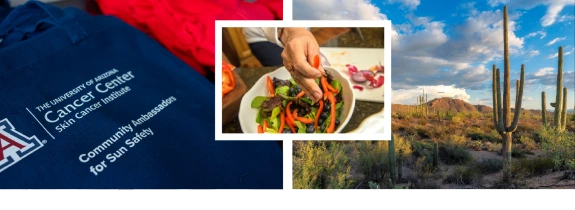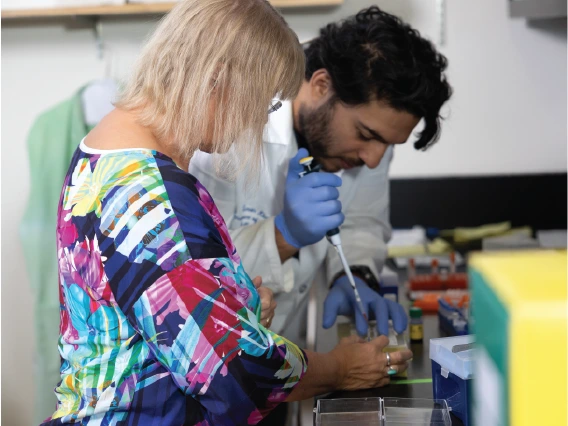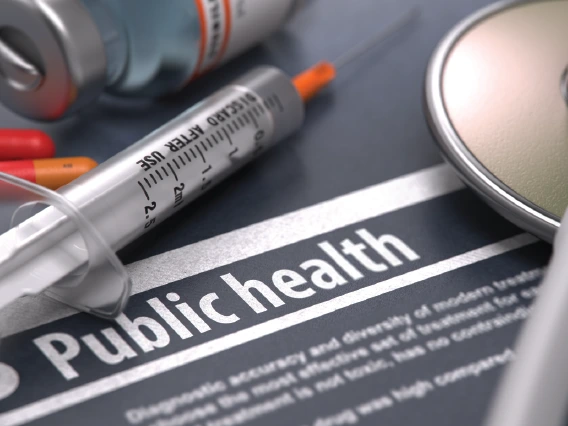
Cancer Prevention & Control
The Cancer Prevention and Control Program (CPC) is a longstanding component of the University of Arizona Cancer Center that is characterized by its highly collaborative, multidisciplinary team science designed to reduce cancer rates and related burden. The Cancer Prevention and Control Program is led by Jennifer Bea, PhD, and Heidi Hamann, PhD, leaders who support our cancer prevention scientists in who collectively conduct translational research that spans from the laboratory to the clinic to the community.
The overarching scientific goal of the Cancer Prevention and Control Program (CPCP) is to conduct highly interactive, trans-disciplinary cancer prevention and control research to reduce the cancer burden and disparities. The CPCP is structured to support the mission of the University of Arizona Cancer Center (UACC) through the enhancement and support of collaborations of basic, translational, clinical, behavioral, and population scientists that results in impactful, catchment-relevant cancer research. CPCP members develop and implement novel strategies across the cancer continuum, conducting research that spans the full spectrum of primary, secondary, and tertiary cancer prevention.

Scientific goals are accomplished with integration of faculty from across the campus of the University of Arizona and are operationalized through cancer-site or theme specific team science.
The Program Members’ research aims focus on three major themes:

Discovery
Advance understanding and early detection of cancer through identification of risk factors, development of detection biomarker and imaging technologies.

Intervention
Evaluate novel cancer preventive agents and strategies to reduce the cancer burden.

Dissemination and Implementation
Implement evidence-based behavioral, psycho-social, and system-level programs to promote health and improve outcomes.



